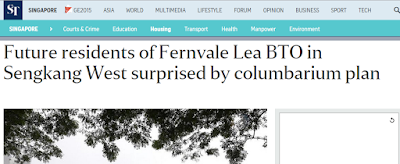In recent days, many in the Tamil community have had their panties in a bunch because some shopping centres and even Changi Airport have started putting up Christmas decor even though Deepavali is right around the corner - in other words, not a single F was given for this festive occasion. While there is good reason to feel marginalised by this callous attitude in multiracial Singapore that champions racial harmony - complete with a special day each year to wear 'costumes' and 'celebrate', I am surprised that anyone is surprised by this.
நான் இந்த விளையாட்டுக்கு வரவில்லை
As a second class citizen myself, I'm sure there are many Tamils who have grown accustomed to this and some of those would have even followed Halloween traditions more closely than their own cultural protocols. And I'm certain that the very people who now 'cry mother, cry father' on social media will tomorrow visit these same establishments "because they have the best deals", "because it is my _____'s birthday", "because it's just this one time", because... a thousand irrelevant reasons.
I am pretty confident too that close to 70% of those fuming at this (with 99% confidence in those venting online) don't have the passion and commitment to their culture to turn all this grumbling into real, concrete action. None of them will truly boycott these establishments to show their stand against being marginalised. In reality, these people are just making a mockery of the Indian culture and the Tamil community by being whiny little b**ches online - complain about marginalisation but 'ownself damage' the standing of the community through inaction and apathy.
வாயை மூடிகிட்டுச் சும்மா இருங்கடா
Many of these 'deeply aggrieved' Indians will no doubt conveniently overlook WHY the shopping centres and even Changi Airport didn't bother to recognise the festive holiday linked to one of the four official languages in Singapore. It's obvious that these people don't see the irony of now demanding tokenism be practised by commercial entities - which would just continue to trivialise the larger issues of importance. Once again, this subset of Singaporeans fights over the scraps instead of climbing up to the table to demand a share of the real deal.
As much as you would like to believe otherwise, the larger community is not going to understand what the furor is about because they haven't felt the pain of being scheduled for some unnecessary thing (that could have been done earlier or later) during their important festive period. Deadlines almost never fall on Chinese New Year eve and assignments are hardly made due on any of the first fifteen days.
அவனை நிறுத்தச் சொல், நான் நிறுத்துகிறேன்
The point is that if all those who now make so much noise had actually bothered to stand up during all these occasions (and I guarantee you every working Tamil in Singapore has suffered such an experience), we wouldn't have to embarrass ourselves with this petty behaviour. There is no point being indignant about a practical consequence, really. Nobody cares about your culture because YOU don't care about your culture. You are not willing to get your hands dirty to fight, so why are you now surprised that they couldn't be bothered about what you believe in?
So please, STFU and live with it quietly. Or... get up and do something about the indiscretions that happen everyday around you, at work, with your non-Indian friends, in your everyday lives. And if you start to think that this sounds quite inconvenient - well, that's precisely what a cultural struggle looks like, not your Facebook posts about the decor at Metro.








